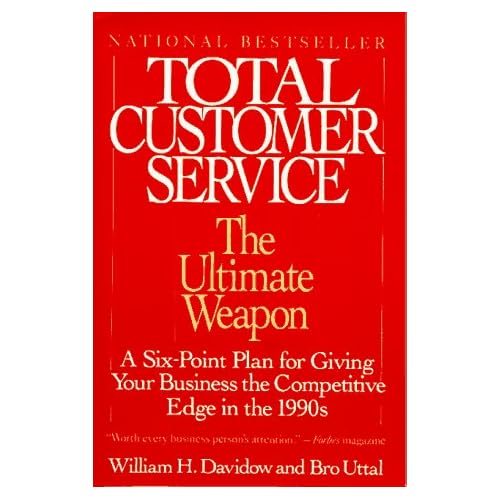The first strategy mentioned is the delivery of excellent customer service, which is something we strive to provide at the West Sacramento Parks & Recreation department. Just to say you have great customer service isn't enough, and it can't be inconsistent (great by one staff member, but poor by another). It has to be a cultural norm, but it can only be the norm if the leaders are working on setting the tone and nurturing the culture to help it grow and mature. I'm pleased to say that just this past Saturday I spent some time with some of our recreation center front-line staff (front desk, lifeguards and child care staff) as they participated in another leadership/management/customer service training.
William Davidow and Bro Uttal, in their best-selling book, Total Customer Service: The Ultimate Weapon*, provide a list of three (3) principles that they say leaders of customer service oriented companies do:
1. Foster a service oriented
culture.
Leaders help create and nurture cultures by communicating use. They put values
into action by treating employees exactly as they want employees to treat
customers.
2. Make customer service
everybody's business.
Unless every employee assumes responsibility for the customer’s experience,
service dies.
3. Declare war on bureaucracy. To produce effective, efficient Customer service,
leaders keep policies, procedures, and other formal control mechanisms to a
minimum, relying instead on cultural control.
As I go down this list of strategies, I find that we are applying these business strategies. Leadership is key (and we are fortunate to have a department director and City Council who provide solid leadership) and having and implementing a thoughtful and deliberate customer service strategy is critical if parks and recreation agencies are to deliver on their vision and mission and not run like stereo-typical government.*This is a great book, but was published in 1989. While some of the examples given are antiquated, the definition and strategies are still very relevant.



